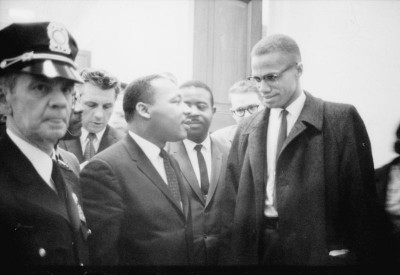I’ve attended a couple of conferences on school desegregation in the past two years, where I’ve encountered the same small group of civil rights activists and sociologists worrying about the demise of desegregation policies around the country and the resurgence of racially segregated schools. So it’s interesting to see Education Next, a journal edited by school-choice proponents Chester Finn Jr. and Mike Petrilli, take up the question of whether desegregation is dead in the forthcoming Fall 2010 issue. (Just the fact that Education Next is writing about desegregation makes me think the answer is, “Not quite yet.”)
The article is a back-and-forth between Susan Eaton and Steven Rivkin, and one interesting discussion point revolves around what desegregation was meant to accomplish. Rivkin, a professor of economics at Amherst College, says desegregation “failed to be the panacea that some believed it would be” because it didn’t “dramatically reduce or eliminate achievement gaps.”
Eaton, who heads an institute devoted to the study of race and justice at Harvard Law School, brings in some evidence to the contrary — but she also makes the point that desegregation was “never meant to be a remedy for low test scores.” Rather, she argues, it was meant to expand opportunities for black students, improve race relations and foster “in the long run, a more democratic, more equal society.”
So what was the point of desegregation? Developing higher achievers or better citizens?
Both Rivkin and Eaton say desegregation helped reduce the number of schools with concentrated minority populations, which are often correlated with the concentrated poverty that can overwhelm a school and drive away good teachers. So they agree that desegregating schools can help in the larger goal of improving minority achievement.
But Eaton’s point is that desegregation was about more than that. It was about pursuing a more diverse, harmonious society by bringing children of different ethnic backgrounds together at a young age.
In an era when the focus is getting kids to be college- and career-ready, pursuing policies that elevate academic achievement is key. But isn’t knowing how to navigate an increasingly diverse society also related to that goal? Perhaps if we’re serious about developing young people who are ready for college and career in a society that will soon be majority minority, we need policies that are focused on both increasing achievement and encouraging integration.




